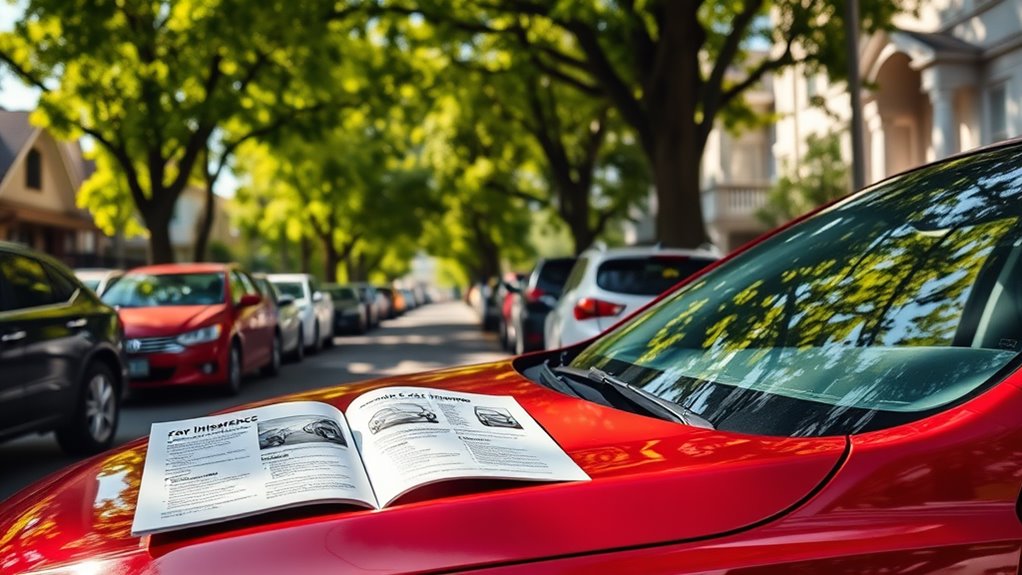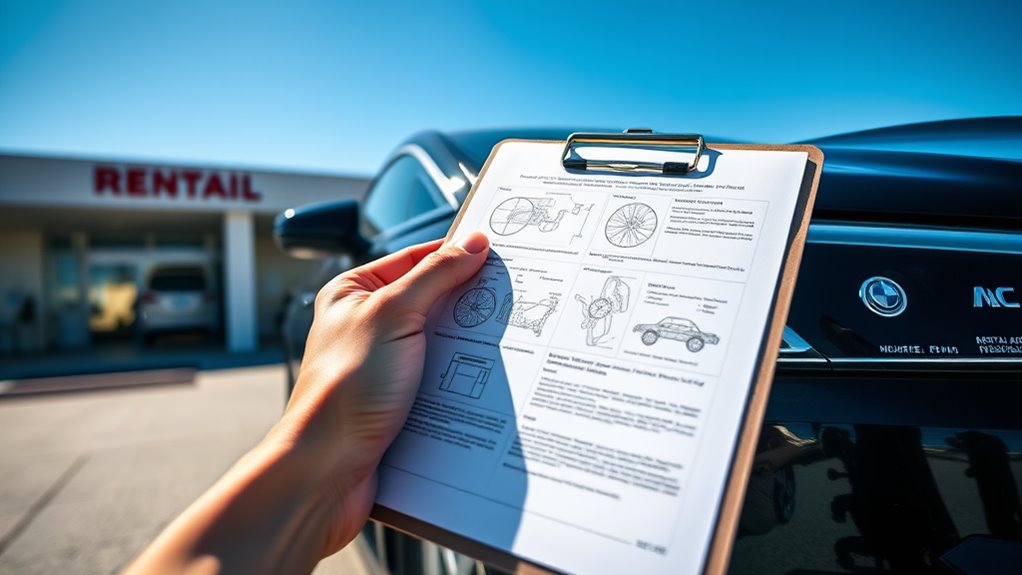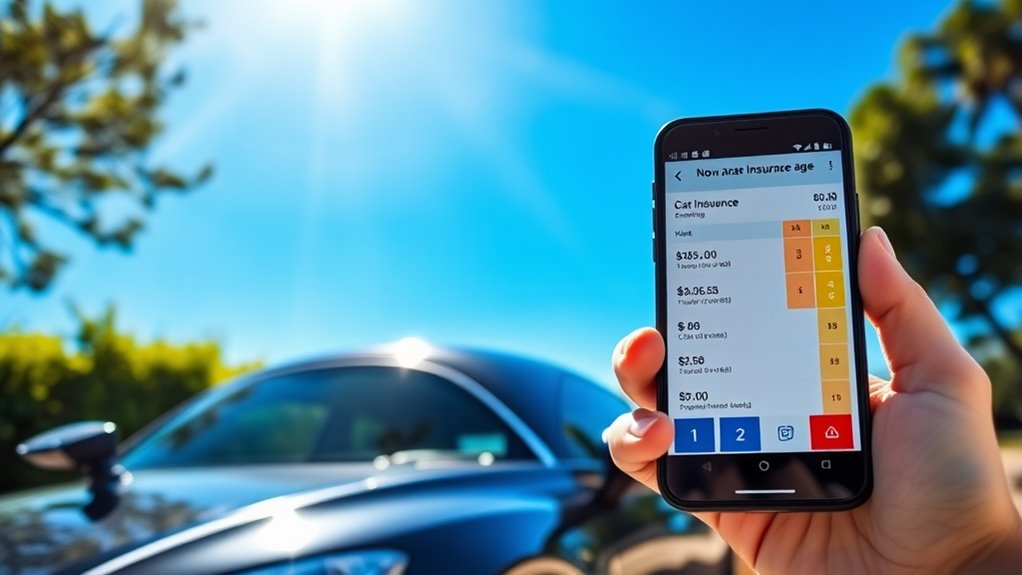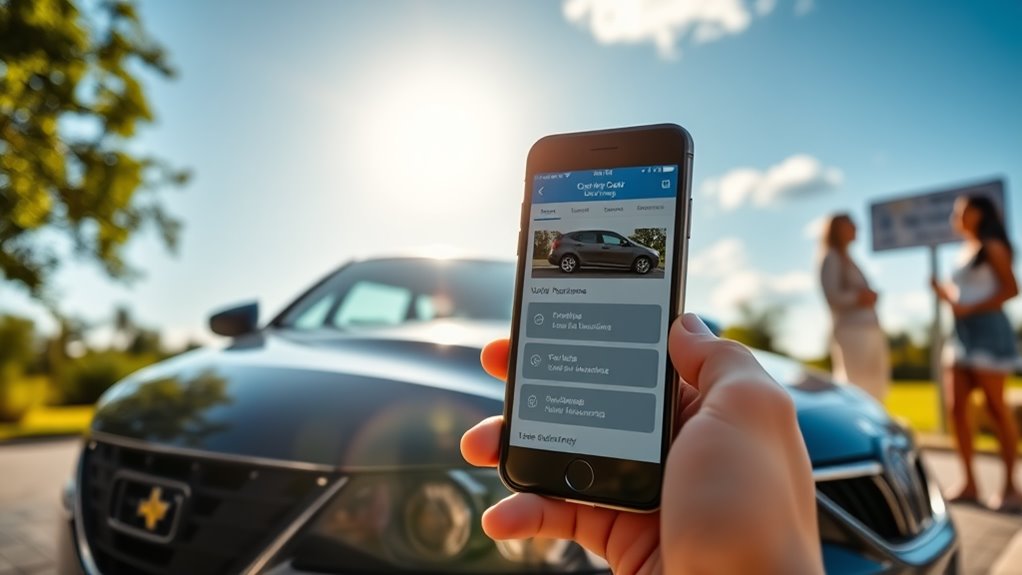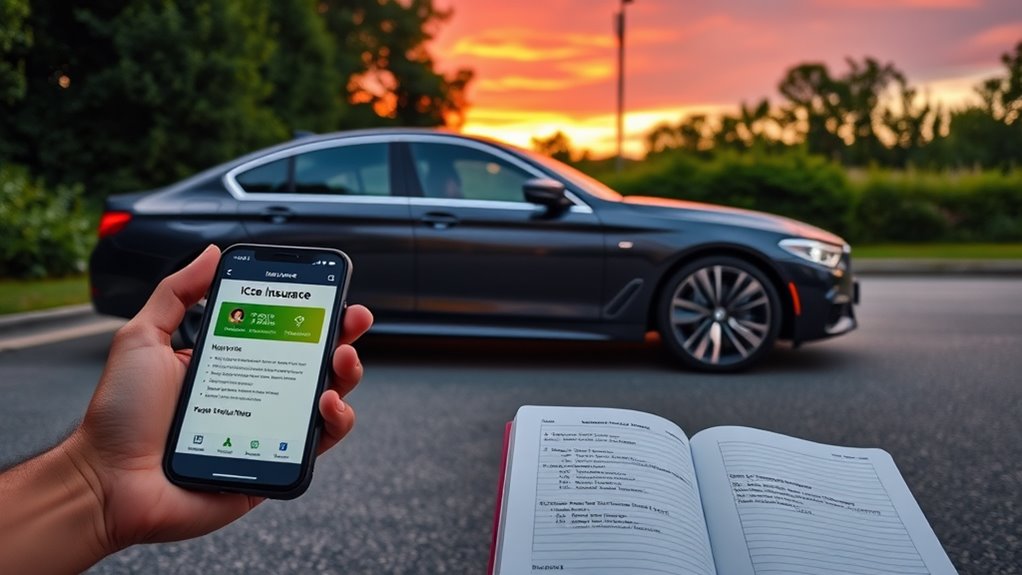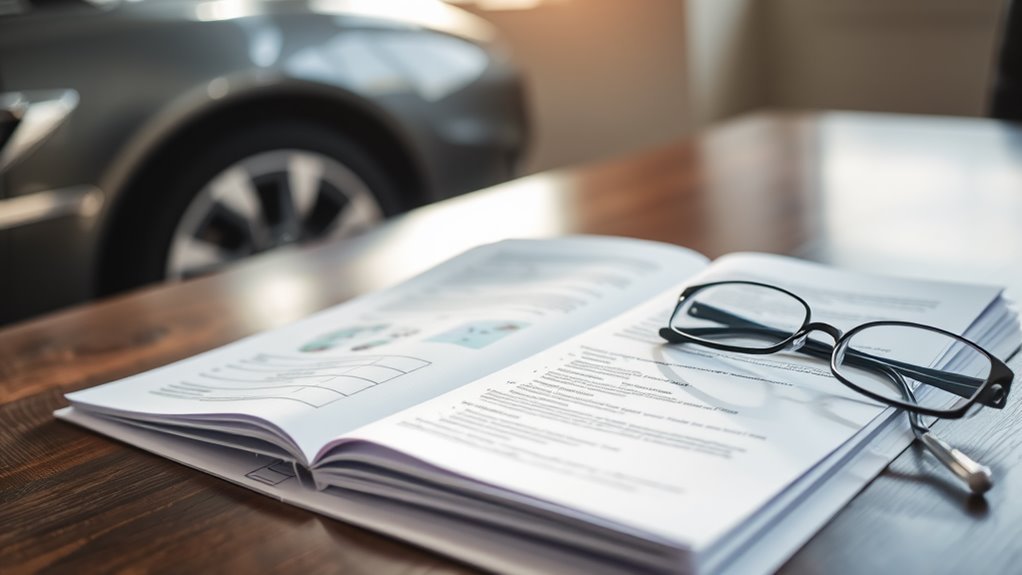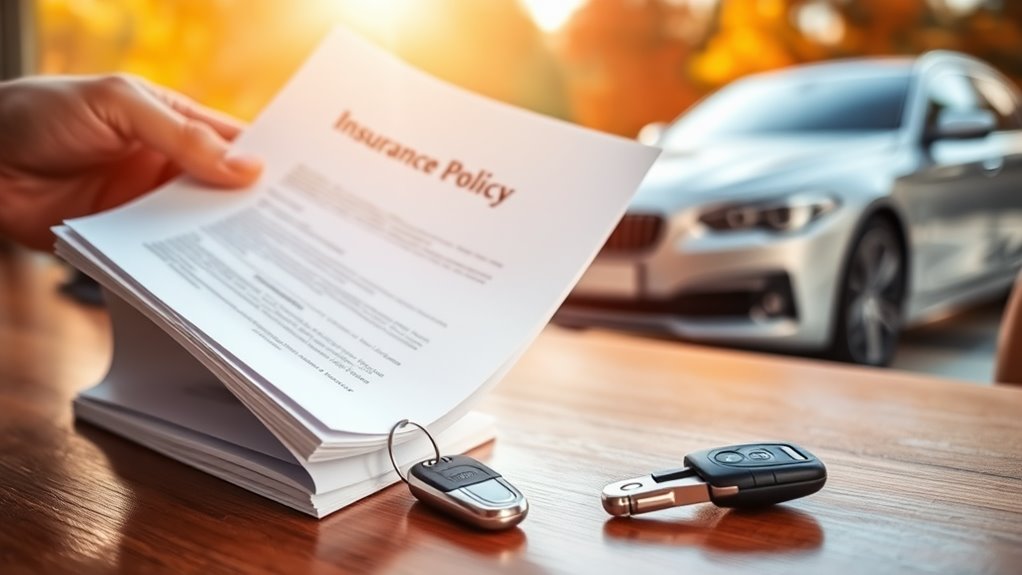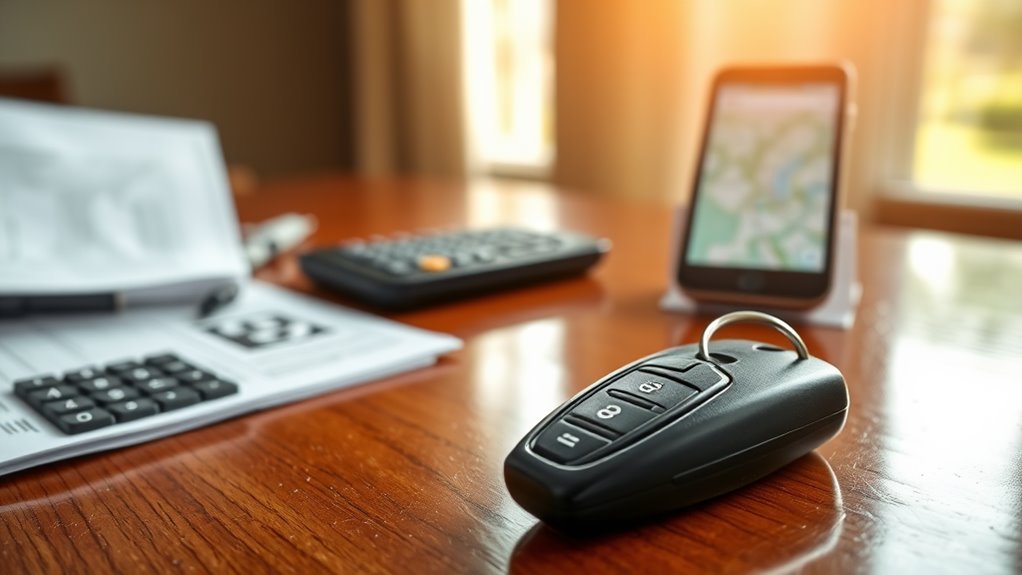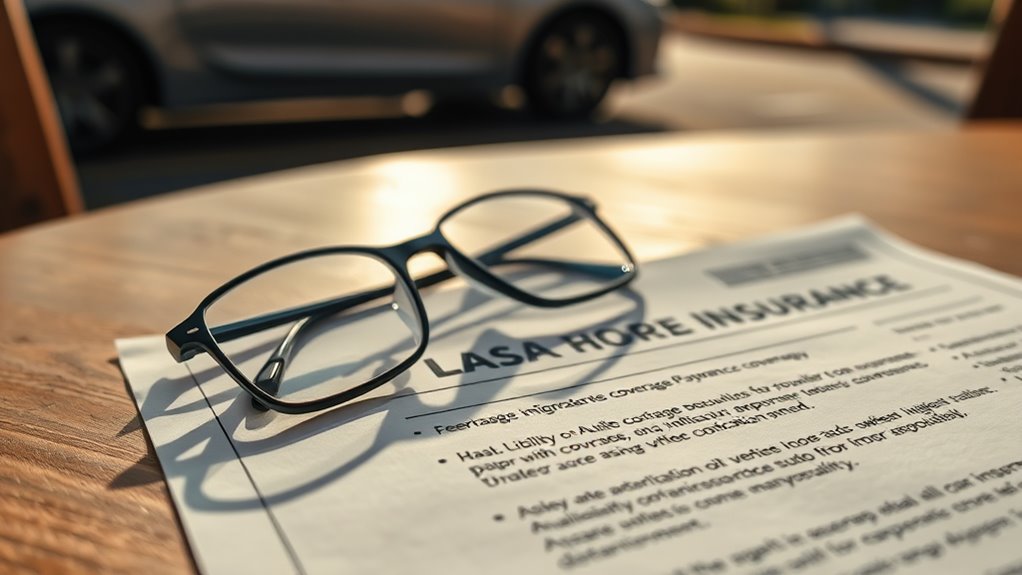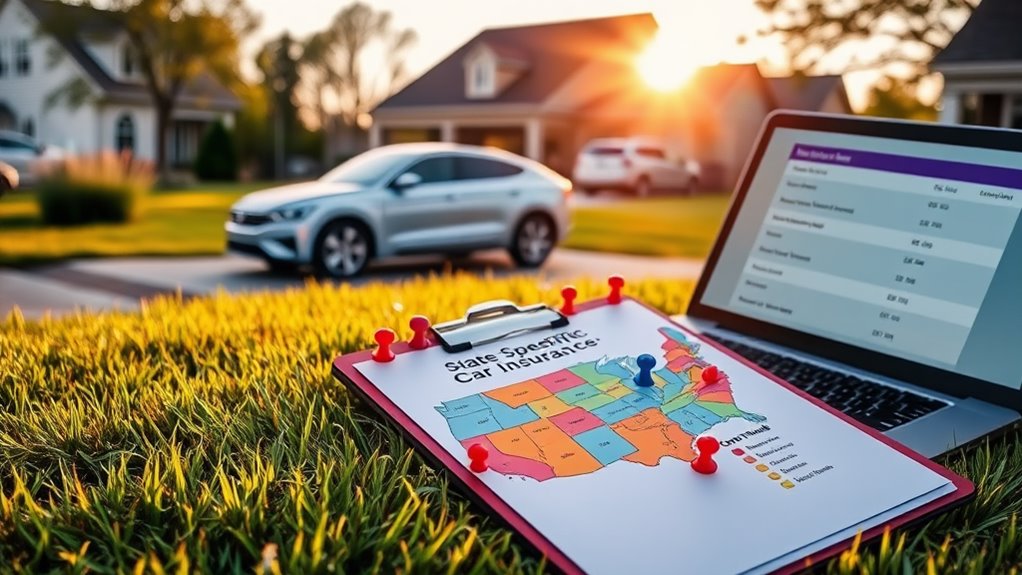Did you know that nearly 30% of car insurance claims are denied due to common exclusions? Understanding these exclusions is essential for every driver. From normal wear and tear to undisclosed household drivers, many pitfalls can leave you financially vulnerable. What might seem like a minor oversight could lead to significant losses. Let's explore the most prevalent exclusions in car insurance policies and how they might impact you.
Key Takeaways
- Normal wear and tear is typically not covered, leading to disputes over claims related to parts deterioration.
- Driving without a valid license usually results in denied insurance claims and potential legal consequences.
- Personal auto insurance policies often exclude coverage for business use of vehicles, requiring separate commercial insurance.
- Damage occurring outside the specified geographic area may not be covered, especially in international situations.
- Claims made during a lapsed policy period can be scrutinized and may lead to higher premiums or legal penalties.
Normal Wear and Tear

Normal wear and tear is an inevitable part of owning a vehicle, encompassing the gradual deterioration of its components due to everyday use. This includes the natural aging process of parts like brake pads, timing belts, and water pumps. Unfortunately, wear and tear isn't covered by car insurance, meaning you'll need to self-insure for these expected maintenance costs. Insurers often deny claims if damage is linked to wear and tear, leading to potential disputes over the cause. To avoid these issues, you should prioritize regular maintenance to prevent excessive deterioration. Setting aside funds for upkeep and maintaining thorough records can help manage expenses and resolve any disputes with insurers regarding wear and tear claims. It is important to note that wear and tear exclusions in insurance policies specifically protect insurers from claims related to normal deterioration. Additionally, understanding non-owner car insurance can provide insights into how insurance coverage works when you do not own the vehicle you are driving.
Driving Without a Valid Licence
Driving without a valid license not only poses significant legal risks but can also jeopardize your insurance coverage. In many areas, it's illegal and can lead to fines or jail time.
Driving without a valid license carries serious legal consequences and risks your insurance coverage.
If you cause an accident while unlicensed, your insurance claim will likely be denied, leaving you financially liable for damages. Furthermore, most policies explicitly exclude coverage for unlicensed drivers, meaning your vehicle could be considered uninsured in such scenarios.
Even if you hold an international driver's license, you must adhere to local laws.
Finally, if you're purchasing insurance without a license, you may need to name a licensed driver as the primary, potentially increasing your premiums. Always verify you're properly licensed before hitting the road.
Business Use of Vehicles
While ensuring you have a valid license is fundamental to maintaining proper insurance coverage, it's equally important to understand how your vehicle's use impacts that coverage.
If you use your vehicle for business, many personal auto insurance policies may exclude that use. Activities like selling or servicing vehicles often fall under these exclusions. Depending on your policy, you might need a separate commercial insurance policy to fully protect your business use.
Additionally, using your vehicle for ride-sharing services typically requires specific coverage. Misrepresenting your vehicle's use can lead to claim denials or policy cancellations.
Always check your policy details and consider additional coverage if you use your vehicle for business purposes to avoid financial risks.
Damage Outside Geographic Area

Understanding the geographic limitations of your car insurance policy is essential, especially if you plan to travel outside your usual area. Many U.S. policies impose restrictions on coverage beyond national borders, leaving you vulnerable to high costs in the event of an accident abroad.
If you live near an international border, be sure to verify if your policy offers coverage when driving into another country. Coverage can vary greatly between insurance companies, so it's vital to read your policy thoroughly.
Additionally, certain regions may have specific licensing and regulatory requirements impacting your coverage. To avoid unexpected expenses, consider purchasing additional international auto insurance before traveling, ensuring you're adequately protected against potential damages outside your geographic area.
Lapsed Policy Claims
Lapsed policy claims can complicate your insurance situation greatly, especially if you find yourself in an accident during a coverage gap. If that happens, you might face several challenges:
- Higher premiums: Insurers often categorize you as high-risk after a lapse, resulting in increased costs.
- Legal penalties: Depending on your state, driving uninsured can lead to fines, license suspension, or worse.
- Claim complications: If you're involved in an accident while uninsured, your claim may be scrutinized for fraud.
To navigate these issues effectively, maintain communication with your provider, explore reinstatement options, and consider legal representation if necessary.
War and Terror Attacks
Insurance policies often come with specific exclusions that can leave policyholders vulnerable in certain scenarios. When it comes to war and terrorism, many standard car insurance policies exclude coverage for damages resulting from acts of war, including invasions and military coups.
This exclusion exists because insurers view war-related damages as uninsurable catastrophic risks that could lead to bankruptcy. Similarly, while acts of terrorism can cause extensive damage, they're often excluded from personal vehicle insurance unless covered under specific programs like TRIA, which primarily applies to commercial properties.
After major attacks, policies have tightened, leaving policyholders with limited options. If you're concerned about these risks, consider specialized coverage, though it typically comes at a higher premium.
Undisclosed Household Drivers
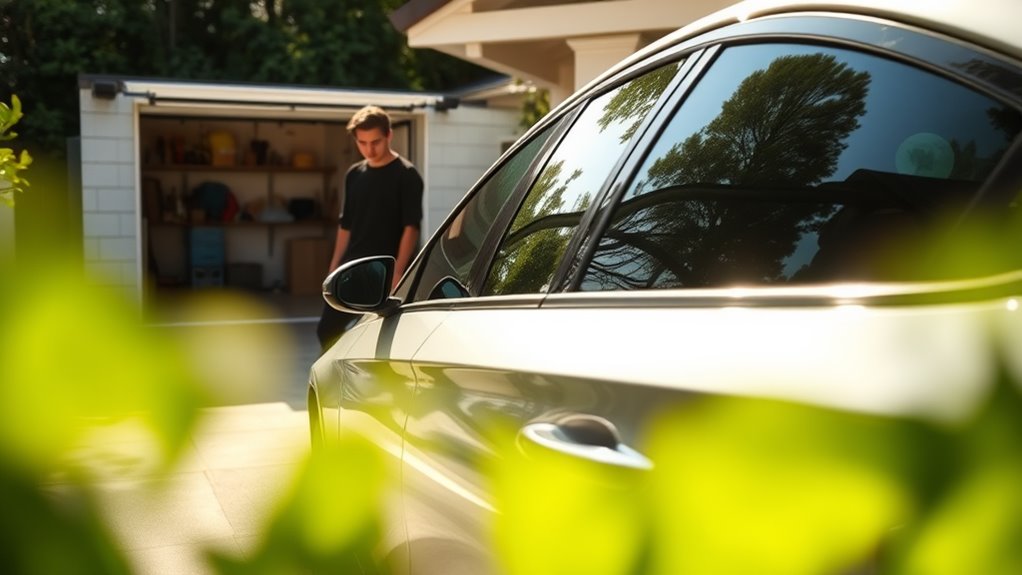
When you fail to disclose household drivers on your car insurance policy, you risk significant consequences that could impact your coverage and financial liability. Here are key points to take into account:
- Policy Exclusions: Many policies exclude coverage for accidents involving undisclosed drivers, leaving you vulnerable.
- Liability Risks: If an undisclosed driver causes an accident, your insurer may deny coverage, leaving you financially liable.
- State Regulations: Disclosure requirements vary by state, so you might face different implications depending on where you live.
Disclosing all licensed household members, regardless of their driving frequency, is essential. If you don't, you may face policy cancellation or rescission, and your financial security could be at stake.
Always review your policy and disclose all relevant drivers.
Conclusion
In maneuvering the world of car insurance, it is crucial to be aware of the subtle pitfalls that could leave you in a tight spot. Understanding these common exclusions helps you steer clear of potential bumps in the road. By ensuring your policy aligns with your needs and avoiding any surprises, you can drive with confidence. So, take a moment to review your coverage and keep your journey smooth and worry-free, because peace of mind is always worth the effort.

